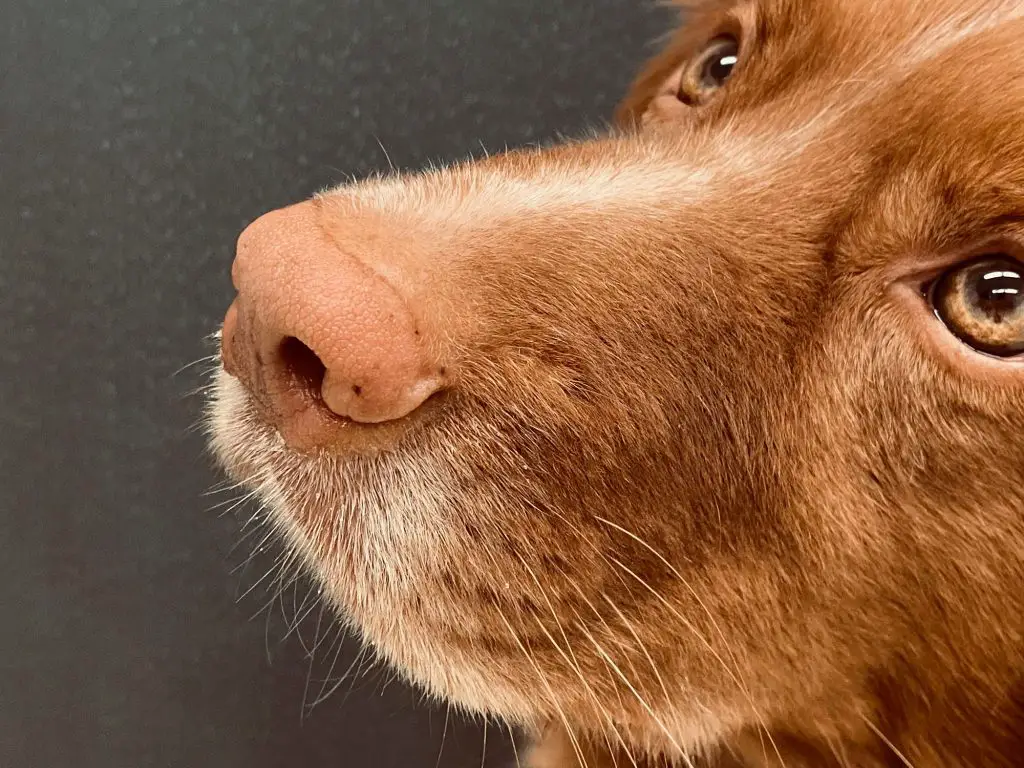Story By: Ana Marjanovic, Sub-Editor: Michael Leidig, Agency: Newsflash
COVID-19 detection dogs can also detect Long Covid in people, according to new research by vets in Germany.
Scientists at the University of Veterinary Medicine in Hanover found that canines specialised on finding the SARS-CoV-2 virus were also able to determine samples of patients suffering from Long COVID effects.
These symptoms can include headaches, breathlessness and a variety of cognitive dysfunction.

The experts said they were optimistic their study result could help improving post-COVID therapies.
Previous scientific examination revealed that specialised dogs could identify samples of people suffering from acute COVID-19. Their abilities regarding Long COVID has not been determined prior to the Hanover vets’ pilot study.
The dogs do not detect the virus itself but volatile organic compounds that are created in metabolic procedures during an infection, according to the Hanover Veterinary Medicine University researchers.
According to the scientists, their result supports the hypothesis that these volatile organic compounds are long-term present in Long COVID patients after the initial infection.
The experts carried out two different Long COVID detection scenarios with the dogs.
The specialised canines showed an exceptionally high success rate of 85 per cent or higher in both procedures.
Professor Holger Volk heads the university’s Clinic for Small Animals.
He said: “We think that further Long COVID research involving medical detection dogs should be carried out based on our results.
“Certain organic compounds are created during respiratory diseases. Our investigation proves that specialised detection dogs can recognise these substances not just during acute COVID infections but also with post-COVID patients.”
Friederike Twele is a veterinarian and neurologist at Hanover’s Veterinary Medicine University.
She underlined the “great potential of medical detection dogs in regard to Long COVID.”
Trained detection dogs are increasingly deployed in medical research.
They are capable of detecting various infectious but also non-infectious illnesses, according to the experts at the Hanover Veterinarian University.
Veterinarian and virologist Claudia Schulz added: “The diagnostic skills of detection dogs are truly impressive.
“They are able to detect not just acute COVID-19 infections but also post-COVID diseases long after common methods such as PCR and antibody tests can provide any significant information.
“This study result could lead to optimised therapies. It might also lead to a better understanding of complex infectious diseases.”
The veterinarians cooperated with scientists at the city’s Medical University and the service dog department of the German Bundeswehr on the COVID detection dog study.
Between 10 and 20 per cent of individuals infected with COVID-19 experience a variety of mid-term and long-term effects after they recover from the initial illness, according to the World Health Organization (WHO).
These symptoms are commonly known as Long COVID of post-COVID.
They include fatigue, headache and shortness of breath but also cognitive dysfunction such as a lack of mental focus.
The National Health Service (NHS) underlines on its website: “How long it takes to recover from COVID-19 is different for everybody.
“Many people feel better in a few days or weeks and most will make a full recovery within 12 weeks. But for some people, symptoms can last longer.”
It points out that “people who had mild symptoms at first can still have long-term problems.”
The University of Veterinary Medicine in Hannover, Lower Saxony, was founded in 1778 under the regency of George III (1738-1820).
George III was King of the United Kingdom of Great Britain and Ireland.
He was a monarch of the House of Hanover. However, George III was born in Great Britain, spoke English as his first language and never visited the central German city.



